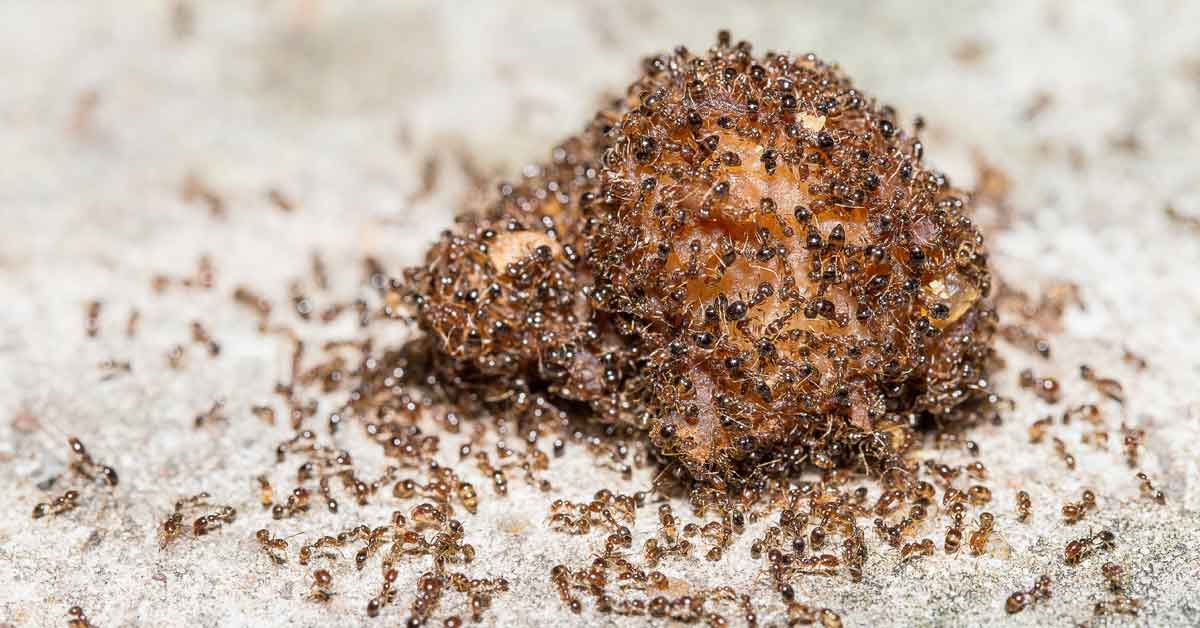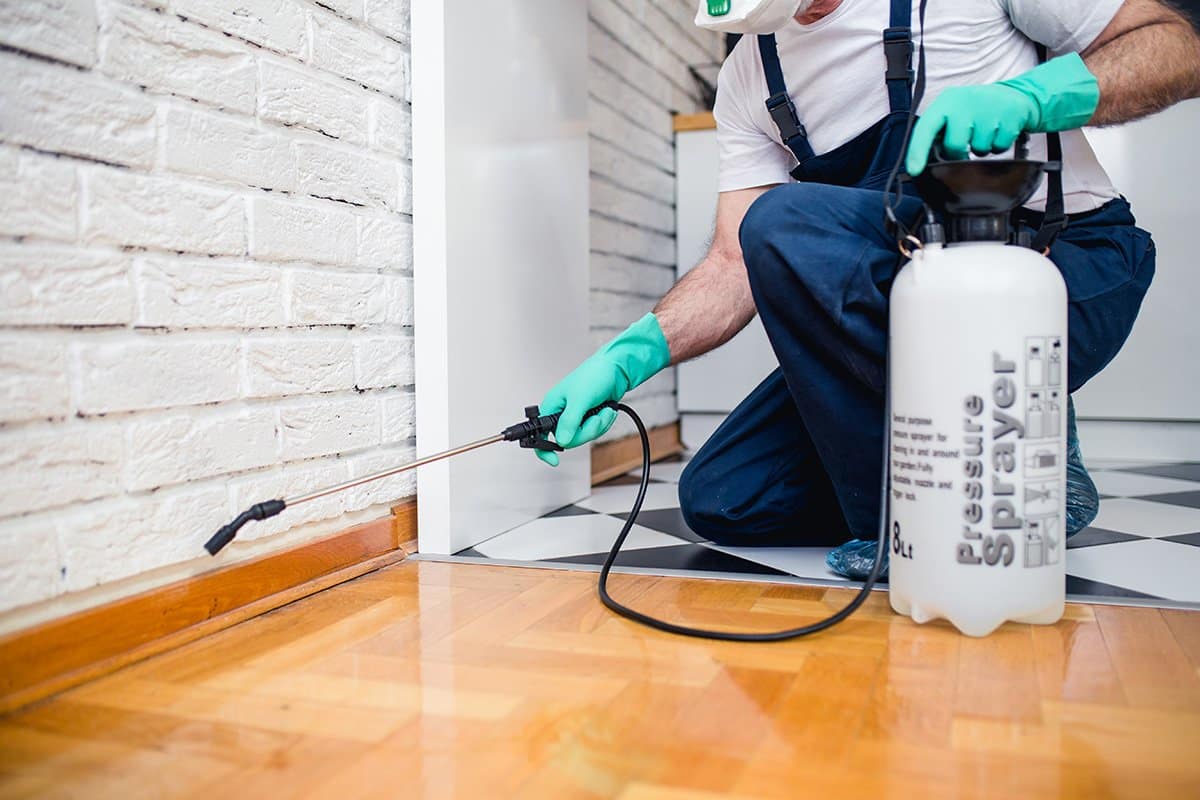Top Ant Control Services: Reputable Solutions for Your Home or Service
Top Ant Control Services: Reputable Solutions for Your Home or Service
Blog Article
Ecological Influence of Parasite Control: Balancing Effectiveness With Sustainability
The ecological impact of bug control is an important concern that requires a fragile balance between achieving efficiency in making certain and managing parasites sustainability of our environments. As we make every effort to protect our plants, homes, and health from the risks presented by pests, the techniques we employ can unintentionally damage the atmosphere. From using damaging chemicals that leak right into our dirt and water to the unexpected consequences on non-target species, the effects of standard pest control methods are far-ranging. However, there are arising techniques that provide hope for an extra lasting strategy to pest management. These solutions not only goal to resolve the instant bug problems however likewise think about the long-term health of our world.
Hazardous Chemicals in Pest Control
The utilization of unsafe chemicals in parasite control presents substantial ecological and health threats that warrant cautious factor to consider and mitigation techniques. Herbicides, chemicals, and insecticides are generally used to eradicate bugs, however their prevalent application can bring about unexpected effects. These chemicals can contaminate dirt, water sources, and the air, impacting not only the targeted bugs however additionally advantageous pests, wildlife, and people.

To address these dangers, incorporated pest monitoring (IPM) strategies are being promoted as a much more sustainable option. IPM involves a combination of approaches such as biological control, environment manipulation, and the targeted use pesticides as a last hope (ant control high point nc). By embracing an all natural approach to pest control, we can lessen the environmental and health effects associated with hazardous chemicals while successfully managing pest populaces
Effect On Non-Target Species
Taking into consideration the unintended repercussions of bug control methods, the effect on non-target types is a crucial element that needs comprehensive analysis. While insect control procedures intend to target details pests, various other organisms in the community may be accidentally affected. Non-target types, consisting of useful pests, birds, animals, and also plants, can experience direct or indirect injury from chemical applications or organic control methods.
Pesticides developed to deal with a certain bug pest may harm pollinators like or natural killers such as ladybugs. Biological control representatives, if not species-specific, can position threats to unintended targets, interfering with the environmental equilibrium.
To mitigate the effect on non-target varieties, integrated parasite management (IPM) methods that stress an all natural method to pest control are suggested. These approaches prioritize the use of eco-friendly practices, minimizing injury to useful organisms while efficiently taking care of pest populaces. Conducting extensive danger analyses and checking the outcomes of bug control initiatives are crucial actions in protecting non-target species and promoting total environment health.
Dirt and Water Contamination
Unintentional ecological repercussions of insect control approaches expand beyond impacting non-target types, with considerable implications for dirt and water contamination - termite control services. Pesticides, herbicides, and chemical plant foods used in parasite control can seep into the soil and pollute groundwater, posing a hazard to both aquatic and terrestrial environments.
Water contamination is an additional crucial issue connected with pest control practices. Drainage from agricultural areas treated with pesticides can lug these chemicals into close-by water bodies, influencing marine organisms and water top quality. Pollutants in water sources can have significant consequences, impacting not just aquatic life however also human health and wellness with the consumption of contaminated water or water microorganisms. To reduce soil and water contamination from bug control activities, integrated pest management methods that prioritize sustainability and decrease chemical inputs are important.
Air Contamination From Chemical Use
Direct exposure to airborne chemicals during farming applications presents a significant problem for air contamination control procedures. They can volatilize right into the air and kind unstable natural substances (VOCs) and other air-borne toxins when chemicals are splashed onto crops - ant control services. These chemicals can add to the development of ground-level ozone, a major part of smoke that can have detrimental results on human health and wellness, crop performance, and general air high quality. Additionally, pesticide drift, where pesticides are carried by the wind to unintended areas, can lead to the contamination of close-by communities and water bodies.

Methods for Sustainable Insect Control
In the realm of agricultural methods, applying lasting parasite control methods is paramount for keeping environmental equilibrium and securing plant returns. Sustainable parasite control stresses using eco-friendly approaches to manage insect populaces successfully while lessening harm to non-target microorganisms and ecosystems. Integrated Bug Management (IPM) is a widely taken on method that combines organic, social, physical, and chemical control techniques to achieve long-lasting parasite monitoring solutions.
Crop ant control weddington nc rotation and diversity are likewise reliable methods to disrupt pest life cycles and produce less favorable conditions for parasites to thrive. Eventually, by integrating these sustainable insect control approaches, farmers can accomplish a balance between pest management effectiveness and environmental stewardship.
Conclusion
To conclude, the environmental influence of insect control methods have to be very carefully considered to stabilize efficiency with sustainability. Dangerous chemicals utilized in insect control can lead to soil and water contamination, air contamination, and harm non-target types - termite control services. It is crucial to implement lasting pest control approaches to minimize these unfavorable results on the atmosphere and advertise a much healthier ecosystem for future generations
By adopting a holistic method to pest control, we can decrease the environmental and health and wellness impacts associated with hazardous chemicals while efficiently handling pest populations.

To minimize the air contamination created by pesticide usage, it is essential to embrace integrated bug management methods that prioritize the use of non-chemical pest control techniques, such as crop rotation, natural killers, and resistant crop selections. Sustainable pest control emphasizes the use of environmentally pleasant approaches to take care of bug populaces successfully while reducing injury to non-target organisms and environments. Integrated Bug Administration (IPM) is an extensively adopted approach that combines biological, cultural, physical, and chemical control techniques to achieve lasting pest monitoring remedies.
Report this page